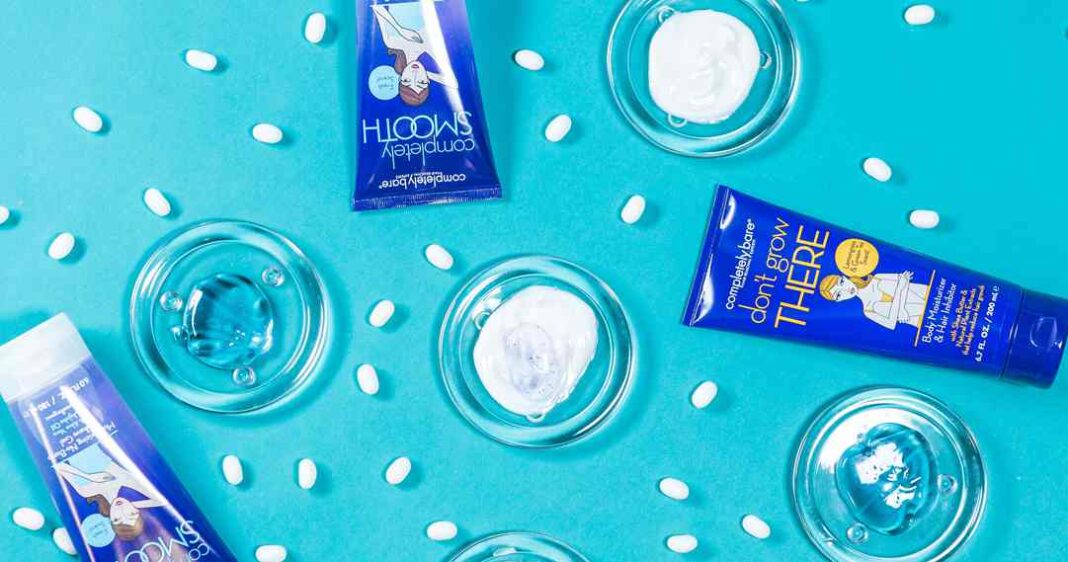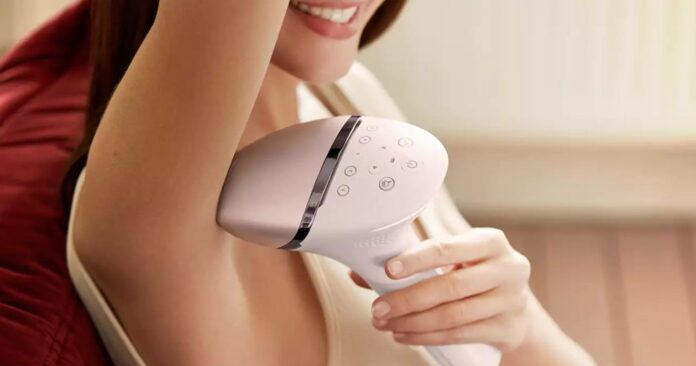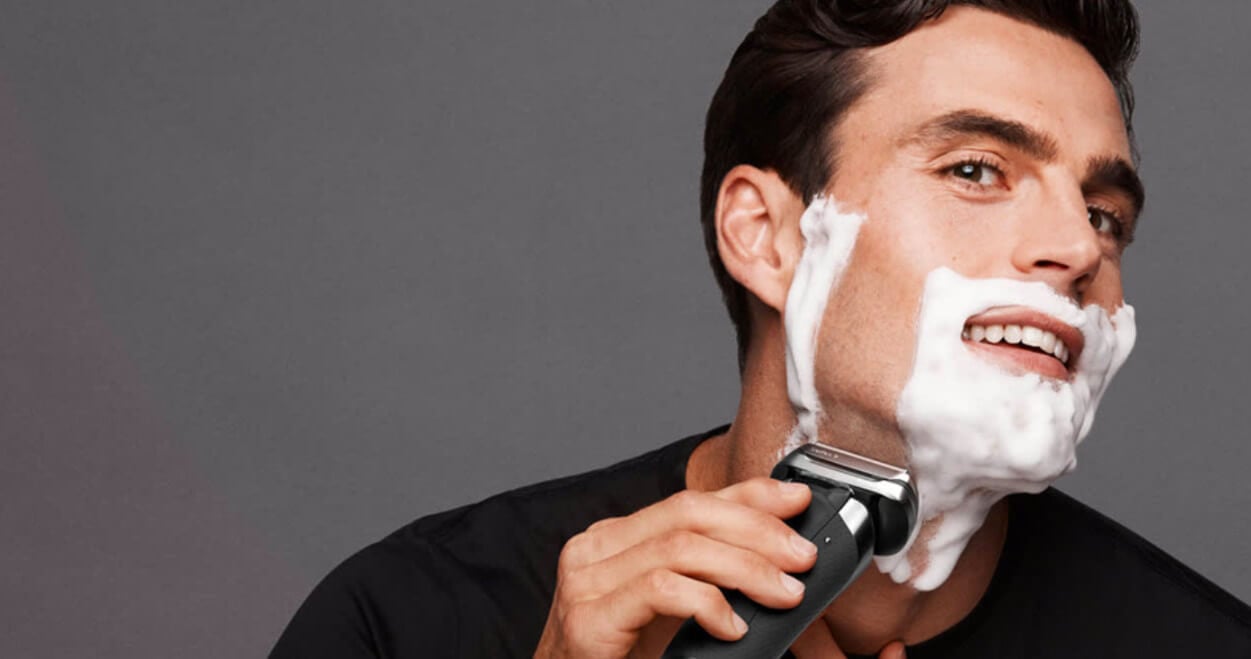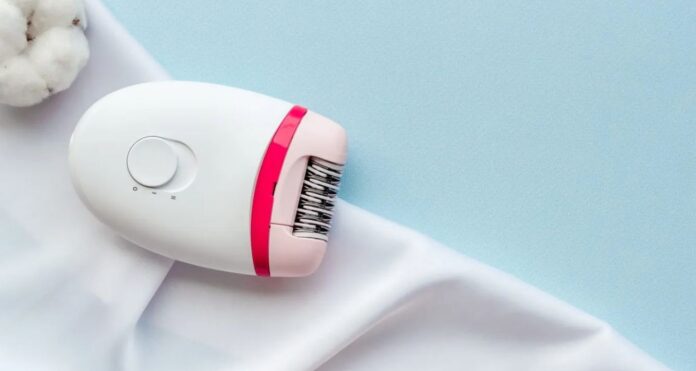As more people try to steer away from traditional hair removal methods like shaving or waxing, depilatory creams are being hailed as the end-all-be-all solution to nearly painless, hair-free skin.
However, given that the majority of women seem to favor more old-school approaches like bleaching or waxing, the effectiveness and overall value of depilatory creams might come into question.
So, if you’ve been thinking about trying this hair removal method but feel a bit uncertain, make sure to read on. Below, you’ll find everything you need to know about depilatory creams, from safety to results.
Is Hair Removal Cream Safe?
The main concern most people have with depilatory creams revolves around their safety. Luckily, we’re here to deliver some good news.
Depilatory creams are safe to use by the majority of the population. This means that as long as you check the ingredients list for any allergens and do a small patch test first you should be good to go.
However, if you have a history of sensitive skin or don’t respond well to other hair removal methods, it’s worth exploring the topic further with a medical professional before giving depilatory creams a try.
Moreover, it’s important to note that following the manufacturer’s instructions to a tee while applying the cream is of the essence when it comes to having a safe, pain-free experience.
Aftercare is also important, so don’t forget to apply some moisturizer on your skin after removing the hair with a depilatory cream since the area is bound to be a bit dry and damaged. Doing so will allow you to relieve any irritation so long as you don’t use a product that’s overly harsh or scented.
It’s also important to note that no two depilatory creams are created the same, so take the time to research a brand and variation that seems like the best fit for your skin. Make sure that the product you’re choosing is actually intended to be used in the areas you’d like to treat.
Some creams can be too strong for sensitive body parts like your face, armpits, or bikini line, so do your due diligence.
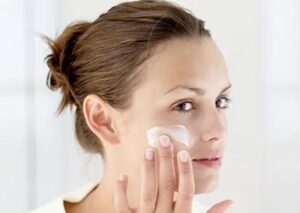
Can You Use Hair Removal Cream on Your Face?
You can use some types of hair removal cream on your face; however, only if the packaging says it’s safe for you to do so.
This plays off of that last point, proving once again that choosing the right product can make or break your entire experience.
The skin on our faces is very sensitive, and certain chemicals that need to be used on strong, leg or arm hair are simply too harsh for your face to handle, causing redness and irritation.
Does Hair Removal Cream Cause Cancer?
As of the time of writing this article, there is no scientific evidence to suggest a link between depilatory creams and cancer.
While misuse of these products can lead to some unwanted side effects (more on that below), any idea that there’s a link between this hair removal method and cancer is just a myth, not a well-founded fact.
These creams work by breaking down the hair at the skin’s surface and, as it stands, this method of working hasn’t raised any red flags in terms of safety.
Arguments against depilatory creams can be made based on effectiveness and longevity, especially when it comes to lower-quality products. However, as far as life-threatening conditions go, you shouldn’t be concerned.
With all that said, it’s important to note that if you’re still uncertain about a specific ingredient, it’s a good idea to consult with a dermatologist or even your family doctor before using these creams.
Alternatively, you can always search for natural, organic products whose ingredient list puts your mind at ease.
Why Does Hair Removal Cream Smell So Bad?
Hair removal creams are notorious for their strong, unpleasant smell that can be hard to get off even after a good shower.
Unfortunately, there’s little manufacturers can do about that scent, since the chemicals used in the formulation of most depilatory creams on the market today are the ones to blame.
For example, thioglycolic acid, the main active ingredient in all hair removal creams, releases a distinctive odor when it interacts with the proteins in our hair.
As a result, manufacturers can add certain fragrances and oils to cover up some of the unpleasantness, but they can’t remove the smell altogether, at least not yet.
Side Effects of Hair Removal Cream
While hair removal creams won’t cause cancer or any other life-threatening conditions, there are still some potential side effects to be mindful of.
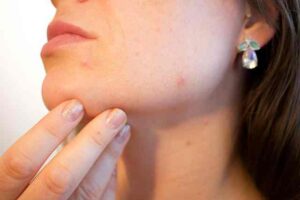
For example, many depilatory cream users will experience skin irritation, redness, itching, or even a burning sensation.
When you don’t follow the instructions on the box properly and end up leaving the cream on too long, you open yourself up to a plethora of other complications. In rare cases, you can even cause yourself a chemical burn. If that happens, you’ll want to seek medical attention immediately.
Moreover, those with sensitive skin or allergies need to be extra careful so as to not cause a reaction.
Keep in mind that you don’t always know what you’re allergic to before you come in contact with it, so always make sure to do a test patch first to see how your skin reacts before slathering the cream on large/sensitive areas.
Though this might seem like overkill, I assure you it’s better to be safe than sorry – in severe cases, an allergic reaction can lead to hives, swelling, and discoloration.
The good news is that there are some steps you can take to avoid these side effects as much as possible. These include:
- Following the manufacturer’s instructions as closely as possible.
- Choosing a hair removal cream that’s suitable for your skin.
- Not applying hair removal cream on irritated or damaged skin.
- Moisturizing the affected skin right after the hair removal treatment.
How Often Can You Use Hair Removal Cream?
While questions like “Is Hair Removal Cream Safe?” and “What Are The Side Effects Of Hair Removal cream?” can be given pretty straight-forward answers, when it comes to the frequency of using this hair removal method, there’s no one-size-fits-all solution.
How often you should use your hair removal cream depends on variables such as your hair growth rate and the formulation of the specific product you have. For example, harsher formulas meant to get rid of those extra stubborn hairs can irritate your skin when used several times a week.
Moreover, the area you’re treating dictates how often you can use these creams.
Say you’ve purchased a gentle brand designed for sensitive skin. If you’re using it on your calves, chances are that even a couple of sessions per week won’t damage the skin so long as they’re followed by proper aftercare.
However, the same product used just as frequently on your upper lip could yield different results.
Generally speaking, your best bet is to follow the frequency guidelines printed on the box. Even when you think your skin might be able to take an extra treatment or two, it’s always best to err on the side of safety and either forgo removing your hair altogether or opt for a non-chemical approach.
Where Should Hair Removal Cream Not Be Used?
As a rule of thumb, the best way to gauge where you can and cannot use hair removal cream is to read through the instructions on the specific product you’ve bought.
However, if the information in there isn’t sufficient or you haven’t purchased your depilatory cream yet, there are some areas you should never treat with hair removal cream unless otherwise stated by the manufacturer or, better yet, by a medical professional.
These include the genital area and nipples. These are both sensitive parts of your body that don’t typically fare well when they come in contact with the harsh chemicals that are commonly used in depilatory creams.
While there are some specialized brands in the markets that target these areas specifically, exercising caution is still a good idea.
Meanwhile, areas that are a definite “no-go” when it comes to this topic include open wounds, irritated skin, and mucous membranes (e.g., inside the nose, mouth, or eyes).
If accidental contact with any of these areas occurs, don’t hesitate to seek medical attention.
Does Hair Removal Cream Burn?
In ideal conditions, depilatory cream isn’t supposed to burn. Its whole premise revolves around removing your hair in a quick, nearly painless manner.
Some brands can cause some slight tingling as the cream is working its way into the hair. If that’s the case, though, chances are there’s a warning printed on the box that lets you know this type of reaction is normal.
However, when applied on sensitive skin or left on for too long, the formula can sometimes cause a strong burning sensation. Keep in mind that this is a sign for you to remove the cream immediately, even if there hasn’t been enough time for it to work.
Otherwise, you risk causing yourself a chemical burn that will leave your skin looking and feeling anything but smooth.
Conclusion
Depilatory creams can be a safe, pain-free hair removal method as long as they’re used responsibly. However, for the best results, it’s crucial to invest in the right type of product and follow the manufacturer’s instructions to a tee; otherwise, you risk dealing with adverse reactions.
Generally speaking, it’s always a good idea to have a healthcare professional or licensed dermatologist guide you through this process.

 By Viktoria
By Viktoria
